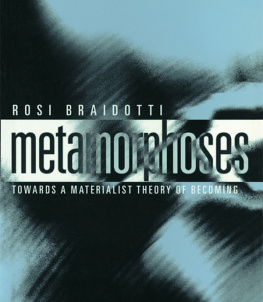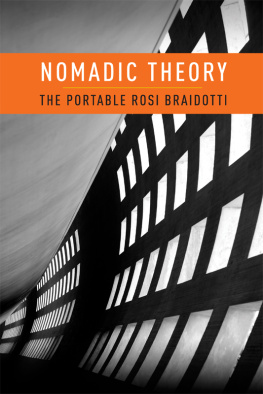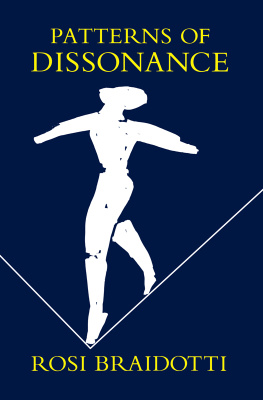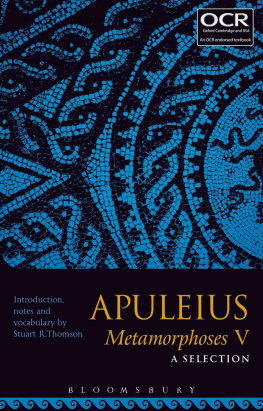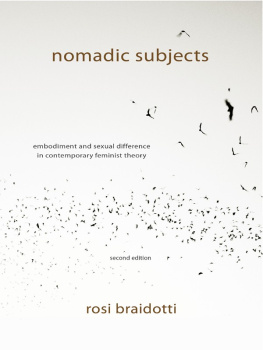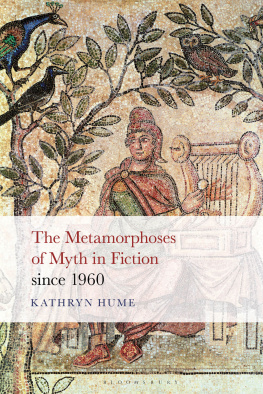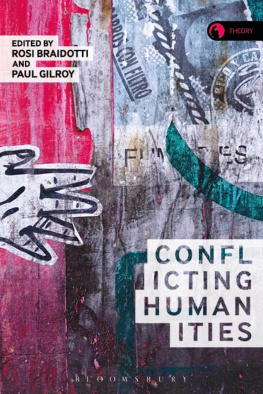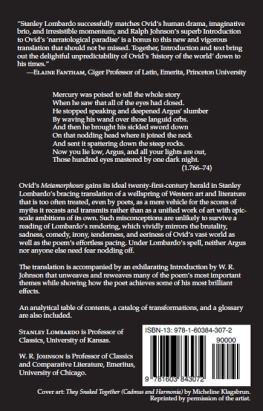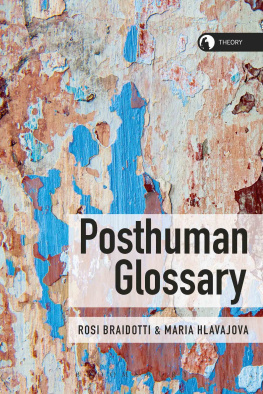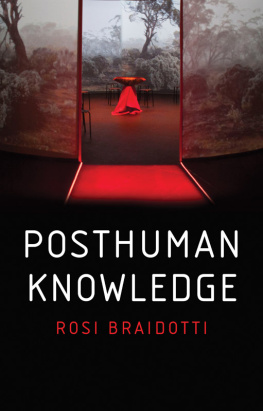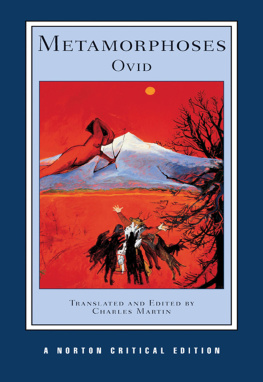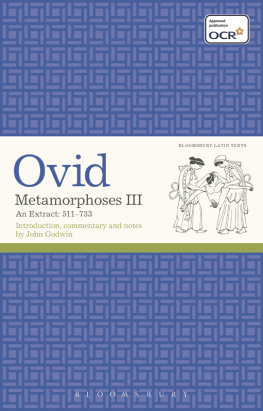Braidotti - Metamorphoses: towards a materialist theory of becoming
Here you can read online Braidotti - Metamorphoses: towards a materialist theory of becoming full text of the book (entire story) in english for free. Download pdf and epub, get meaning, cover and reviews about this ebook. City: Cambridge, year: 2008, publisher: Wiley;Polity, genre: Politics. Description of the work, (preface) as well as reviews are available. Best literature library LitArk.com created for fans of good reading and offers a wide selection of genres:
Romance novel
Science fiction
Adventure
Detective
Science
History
Home and family
Prose
Art
Politics
Computer
Non-fiction
Religion
Business
Children
Humor
Choose a favorite category and find really read worthwhile books. Enjoy immersion in the world of imagination, feel the emotions of the characters or learn something new for yourself, make an fascinating discovery.
Metamorphoses: towards a materialist theory of becoming: summary, description and annotation
We offer to read an annotation, description, summary or preface (depends on what the author of the book "Metamorphoses: towards a materialist theory of becoming" wrote himself). If you haven't found the necessary information about the book — write in the comments, we will try to find it.
Braidotti: author's other books
Who wrote Metamorphoses: towards a materialist theory of becoming? Find out the surname, the name of the author of the book and a list of all author's works by series.
Metamorphoses: towards a materialist theory of becoming — read online for free the complete book (whole text) full work
Below is the text of the book, divided by pages. System saving the place of the last page read, allows you to conveniently read the book "Metamorphoses: towards a materialist theory of becoming" online for free, without having to search again every time where you left off. Put a bookmark, and you can go to the page where you finished reading at any time.
Font size:
Interval:
Bookmark:
metamorphoses
TOWARDS A MATERIALIST THEORY OF BECOMING
ROSI BRAIDOTTI
Polity
Copyright Rosi Braidotti 2002
The right of Rosi Braidotti to be identified as author of this work has been asserted in accordance with the Copyright, Designs and Patents Act 1988.
First published in 2002 by Polity Press in association with Blackwell Publishers Ltd.
Editorial office:
Polity Press
65 Bridge Street
Cambridge CB2 1UR, UK
Published in the USA by
Polity Press
350 Main Street
Malden, MA 02148, USA
All rights reserved. Except for the quotation of short passages for the purposes of criticism and review, no part of this publication may be reproduced, stored in a retrieval system, or transmitted, in any form or by any means, electronic, mechanical, photocopying, recording or otherwise, without the prior permission of the publisher.
Except in the United States of America, this book is sold subject to the condition that it shall not, by way of trade or otherwise, be lent, re-sold, hired out, or otherwise circulated without the publishers prior consent in any form of binding or cover other than that in which it is published and without a similar condition including this condition being imposed on the subsequent purchaser.
A catalogue record for this book is available from the British Library.
Library of Congress Cataloging-in-Publication Data
Braidotti, Rosi.
Metamorphoses : towards a materialist theory of becoming / Rosi Braidotti.
p. cm.
Includes bibliographical references and index.
ISBN 978-0-7456-2576-8 (hardback : alk. paper) ISBN 978-0-7456-2577-5 (pbk. : alk. paper) ISBN 978-0-7456-6574-0 (ebook)
1. Feminist theory. 2. Becoming (Philosophy) I. Title.
HQ1190.B737 2002
305.4201dc21 01002613
Typeset in 10 on 12pt Times
by Graphicraft Limited, Hong Kong
Printed in Great Britain by TJ International, Padstow, Cornwall
This book is printed on acid-free paper.
For further information on Polity, visit our website: www.politybooks.com
For Anneke
Contents
Acknowledgements
My gratitude goes first and foremost to my colleagues in the department of womens studies in the Arts Faculty of Utrecht University who continue to provide a nurturing and stimulating work environment: Berteke Waaldijk, Rosemarie Buikema, Gloria Wekker and Mischa Peters.
I am especially indebted to Dean Wiecher Zwanenburg and Dean Riet Schenkeveld-van der Dussen for granting me sabbatical leave in 1995, which allowed me to do the basic research for this book. I spent the sabbatical as a fellow in the School of Social Studies of the Institute for Advanced Studies in Princeton, USA. I am grateful to the Institute for providing me with a fellowship for that academic year. I also owe thanks to the Netherlands America Commission for Educational Exchanges and especially to the Fulbright Commission and to Jan Veldhuis for awarding me a senior Fulbright Grant that allowed me the year off. In Princeton, at the Institute for Advanced Studies I was most fortunate in having Joan Scott as mentor and point of reference. As ever a source of inspiration, Joan Scott has strongly marked my intellectual development. I also profited immensely from conversations with Michael Walzer, Albert Hirschmann, Clifford Geertz, Evelynn Hammonds, Mary Poovey, Peter Gallison and Carrie Jones. My work at the Institute was facilitated by a fantastic team of librarians, to whom I owe sincere thanks: Elliot Shore, Marcia Tucker, Rebecca Bushby, Faridah Kassim and Pat Bernard.
I also profited greatly from my visit to the Philosophy Department of Melbourne University for several months in 1996. I thank Professor T. Cody, the Arts Faculty of Melbourne University and the postgraduate students for awarding me the official visiting fellowship that greatly facilitated my stay in Melbourne. I also wish to thank the Netherlands Research Organization (NWO) and the Australian Research Council for jointly sponsoring my stay in Australia as part of their bilateral exchanges.
I profited greatly from a months visit to the Institut fr die Wissenschaften vom Menschen in Vienna, in 1996. Dr Cornelia Klinger was extremely supportive and the environment of the Institute very stimulating. Also in 1996 I was fortunate enough to be involved in the symposium Sustainability as a Social Science concept, which was held in Frankfurt, at the Institute for Social-Ecological Research and was sponsored by the UNESCOMOST programme. I thank Professor Egon Becker and Dr Thomas Jahn for their high standards and intellectual leadership.
Being a nomadic scholar, I have also learnt a lot from a shorter but not less stimulating visit to the Instituto Interdisciplinario de Estudides de Genero of the Arts Faculty at the University of Buenos Aires, which I visited for two weeks in October 1998. Dr Nora Dominguez and Dr Mara Luisa Femenas really made this an unforgettable event. I am also grateful to the Faculty Research Institute on Culture and History (OGC) of Utrecht University for sponsoring this visit.
The two-week visit to the Gender Unit at the University of the Western Cape in Capetown, South Africa, in October 1997, was also very important to me. This was sponsored by the UNITWIN exchanges between UWC and Utrecht University. I wish to thank especially Denise Jones, who made all the difference, Wendy Woodward and Rhoda Kadhali, as well as all the staff and students of the Gender Unit. In Utrecht, Rosemarie Buikema and Renee Rmkens were extremely supportive.
From 1998 to date I have had the honour of being appointed Recurrent Visiting Professor at the Gender Institute of the London School of Economics. This appointment was also financially supported by the Research Institute for Culture and History of Utrecht University (OGC), which again I thank. In London I was fortunate in engaging in thought-provoking exchanges with Professors Henrietta Moore, Anne Phillips and Tony Giddens, as well as all the staff and students of the Gender Institute, whom I gratefully acknowledge.
In Utrecht, I depended on several generations of patient and dedicated research assistants who kept the manuscript alive when I was swamped by work: Esther Captain, Yvette van der Linde, Mischa Peters and especially Titia Blanksma and Claire Needler who saw me through the very difficult last phases.
Among my colleagues, I am especially indebted to Veronique Schutgens and Trude Oorschot who, as co-ordinators of the Netherlands Research School of Womens Studies, facilitated my work as director and freed me for research and writing. Thanks also to Esther Vonk and my European partners in the ATHENA network for womens studies, especially Gabriele Griffin, Nina Lykke, Harriet Silius and Diana Anders. My sister Giovanna provided brilliant insights and high-level scientific information, as well as wit and support. Wiljan van den Akker and Harry Kunneman were present in their criticism and support for my work, as were many other friends and colleagues near and far. A deeply loving thought goes out to Kathy Acker and Clare Duchen, who died far too young. One special friend I do wish to thank is Annamaria Tagliavini in Bologna, who provided constant stimulation, information and challenges to my thinking. Without her inquisitive and fast mind, her wit, and our e-mail discussions, this text could never have been completed.
Last but not least, I thank my life-companion Anneke Smelik, for whom change is a way of life and transformation an ethical issue.
Prologue
I am rooted, but I flow.
Virginia Woolf, The Waves, p. 69
These are strange times, and strange things are happening. Times of ever-expanding, yet spasmodic, waves of change, which engender the simultaneous occurrence of contradictory effects. Times of fast-moving changes which do not wipe out the brutality of power-relations, but in many ways intensify them and bring them to the point of implosion.
Next pageFont size:
Interval:
Bookmark:
Similar books «Metamorphoses: towards a materialist theory of becoming»
Look at similar books to Metamorphoses: towards a materialist theory of becoming. We have selected literature similar in name and meaning in the hope of providing readers with more options to find new, interesting, not yet read works.
Discussion, reviews of the book Metamorphoses: towards a materialist theory of becoming and just readers' own opinions. Leave your comments, write what you think about the work, its meaning or the main characters. Specify what exactly you liked and what you didn't like, and why you think so.

